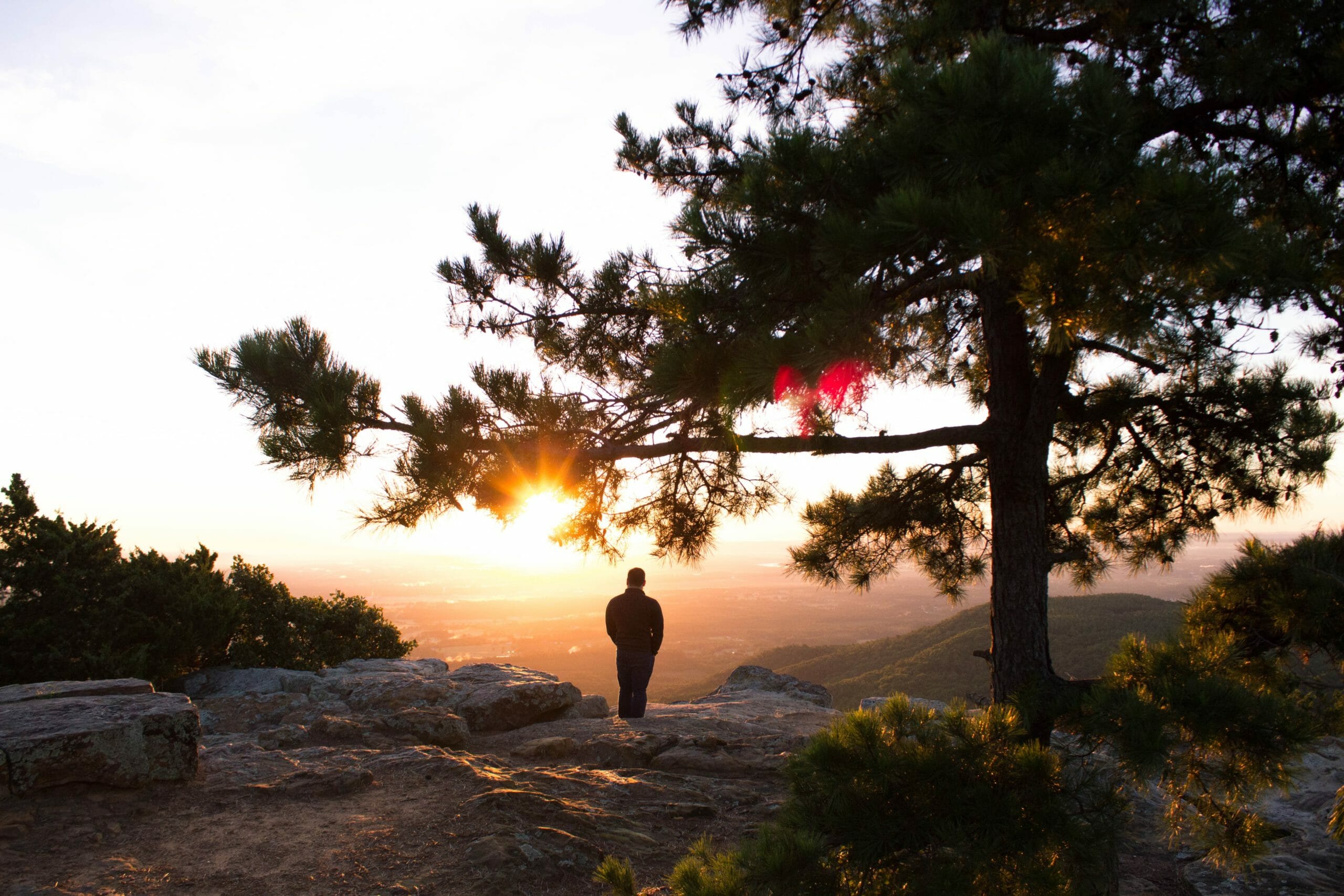
Photo by Reymark Franke on Unsplash
Learning from loneliness

Margaret Marcuson
June 15, 2020
We have all spent weeks separated from many of our usual connections. This can be lonely. Some people, of course, are experiencing too much togetherness. But you can be lonely even if you aren’t alone. It’s lonely not to have your usual connections and interactions, even if you have been cooped up with your kids. And as things begin to open up, that loneliness may lessen but isn’t completely going away. We are connecting with people at a distance, whether virtually or six feet away. The casual hug isn’t coming back for a while.
This time can also be an opportunity, to use the solitude to reflect, learn and grow. The book The Solace of Fierce Landscapes, by Belden Lane, gives “testimony to the healing power of mountain silence and desert indifference.” I read the book 20 years during a lonely, desert time in my own life, and still remember the comfort I received. It reframed the challenging time as an opportunity for spiritual growth.
Scripture is full of fierce landscapes. Abraham was called by God to move far away from family and all he knew best. The people of Israel wandered in the wilderness for years. Jesus, of course, went into the desert right before he began his ministry. It was a time of preparation for the challenges ahead. God can call us to uncomfortable places to prepare us for the work we are called to do.
Abbot Moses, one of the ancient Desert Fathers, said this to a monk: “go, sit in your cell and your cell will teach you everything.” (Celtic Daily Prayer: Prayers and Readings from the Northumbria Community, 2002, p. 424). We are not monks, and we don’t live in “cells” or solitary rooms. However, we can learn from this enforced time, if we embrace the opportunity. Spiritual teachers have long known that coming face to face with yourself is one of the greatest learning opportunities there is. This time has thrown us back on our own resources in new ways, whether we have been at home alone or in enforced togetherness.
As you continue to walk through these days, reflect on what this has been like for you, and what it is like today. What do you notice about yourself? What have you learned about yourself from this time of isolation and loneliness? Or what have you learned about yourself from the enforced togetherness? What do you intend to do differently? What is God calling you to do now in this new environment?
It’s not comfortable to walk through—and now live—such a landscape, such a time. Resources may seem scarce. Oases are few and far between. You don’t know when—or if—you will come out the other side. The familiar seems unfamiliar, and the comforting and safe (like gathered worship) suddenly unsafe. Even as things begin to open up gradually, it’s still unknown territory, with familiar faces wearing masks, and close relationships requiring distance. As worship begins for some, the experience itself is a little uncertain, even scary.
However, we already knew we were facing a new world, a new landscape in which to live as Christians and do ministry. That has been jumpstarted. Perhaps this is a gift. One pastor I coach said, “My church has talked about streaming worship for 10 years, since before I came here. We figured it out in 48 hours.” I’ve told many of the pastors I coach that in some ways they have started a new job, one which they wouldn’t necessarily have taken. But this is the work to be done at this time, a new call in this new environment.
As you continue to walk through these days, reflect on what this has been like for you, and what it is like today. What do you notice about yourself? What have you learned about yourself from this time of isolation and loneliness? Or what have you learned about yourself from the enforced togetherness? What do you intend to do differently? What is God calling you to do now in this new environment?
The Rev. Margaret Marcuson helps ministers do their work without wearing out or burning out, through ministry coaching, presentations and online resources.
The views expressed are those of the author and not necessarily those of American Baptist Home Mission Societies.


